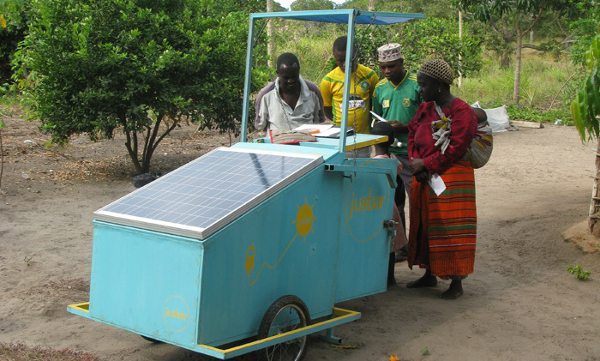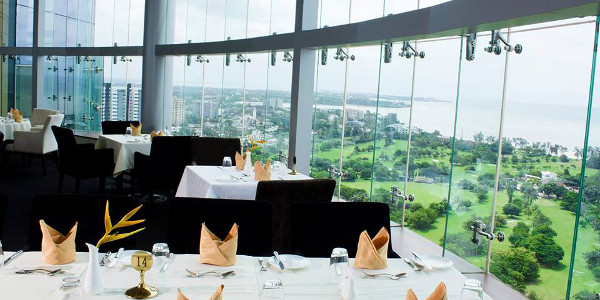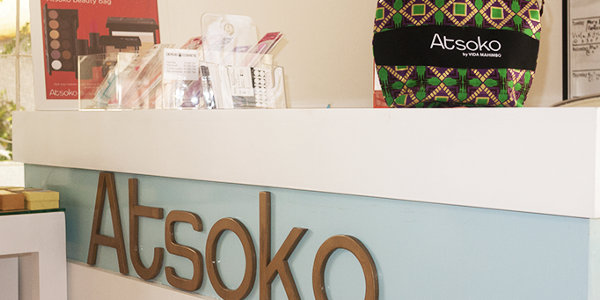
Tanzania has recorded robust economic growth over the last decade and GDP is expected to grow at an average annual rate of 7% from 2014 to 2019.
The country is experiencing progress in the private sector as local businesses increasingly take advantage of the young and growing population of about 48 million, rising income levels, and oil and gas discoveries that have attracted foreign investors.
How we made it in Africa takes a look at six interesting Tanzania-based businesses riding on the country’s emerging opportunities.
By on ’11 June 2015′
1. Black Tomato
Black Tomato is a coffeehouse that currently runs two outlets in Dar es Salaam. Originally from Canada, Black Tomato founder Sandra Macdonald-Mulokozi moved to Tanzania 11 years ago.
“A decade ago I was craving a spot where I could get a good coffee, have Wi-Fi and sit the whole day and not be bothered. That was non-existent. But today I see growth opportunities,” says Macdonald-Mulokozi.
However, competition is growing as more local and foreign brands set up in Dar es Salaam, including South African franchises Rhapsody’s and News Cafe.
“As a small business owner, the way you keep life in your business is by always being creative, to keep ahead of the pack. We cannot outspend the competition in marketing, in terms of dollars. To push forward you need people who are motivated,” she says.
2. Ubongo Media
Ubongo Media is a social enterprise which produces an interactive educational cartoon show that combines mathematical concepts with fun animation and catchy songs. Its 30-minute cartoon series, called Ubongo Kids, seeks to help learners understand basic maths concepts. The edu-cartoon series airs every weekend on the national TV station TBC, and across the region via Chinese pay TV company Star Times and Kenya’s NTV.
“Maths is seen by many children as a boring, hard subject. This attitude has a lot to do with how teachers teach maths. We wanted to make it cool and easier to understand,” says Cleng’a Ng’atigwa, co-founder of Ubongo Media.
The show has reached more than 1.5 million viewers, with kids who watch it recording a 4% improvement in maths.
The company generates revenue from corporate sponsorships, licensing to broadcasters and SMS interaction with kids.
“We now have Ubongo Kids in Swahili and English available to viewers in East Africa. And we intend taking the English version across the continent. There are 440 million children in Africa and we are bringing them a fun new way to learn. And that opens the door to a future of digital learning,” says chief operations officer, Doreen Kessy.
3. Juabar

Energy company Juabar uses a franchise network of micro-business owners to offer phone charging services in off-grid areas using solar-powered kiosks.
The Juabar kiosk is a mobile, light-blue, small wagon, almost similar to what is used by ice-cream vendors. It can charge up to 20 phones at a time. The franchisees, called ‘Juapreneurs’, receive financing, technical support and sales training. They charge between 300 and 500 Tanzanian shillings ($0.14 to $0.23) to charge one phone, and are at liberty to set prices based on market dynamics. In return, they pay a monthly fee of 80,000 shillings ($37) to operate the kiosk as franchisees.
“I am from the US and most people there ask how we can take such a lot of money from people here. The interesting thing is that some of our entrepreneurs make up to three times what they pay us,” says Juabar co-founder Sachi DeCou. “[Initially] we were warned that franchisees would disappear with our kits. We thought about it a lot in the beginning and it was a big concern. But no one has ever run away with any of our kiosks.”
4. Akemi
Akemi is Tanzania’s first revolving restaurant. Established two years ago on the 21st floor of a commercial building in Dar es Salaam, it has become akin to a tourist site. Its clients include city workers, government officials, business people and tourists. Every day the restaurant offers a lunch buffet where diners pay Tsh.30,000 (US$14) to enjoy the food and beautiful views of the Indian Ocean, the harbour and the city.
“People feel excited when they come here and see the views. They can’t believe Tanzania has a revolving restaurant,” says co-founder Priya Kanabar.
But running the restaurant is challenging and not as glamorous as one would imagine. To get it right Kanabar advises entrepreneurs to have a clear plan in the beginning, understand the basics such as their target clientele, make arrangements with reliable vendors and hire the best talent.
“You should have lots of patience and be flexible enough to adapt to changes as the market dictates,” she says.
5. Kinu Hub
Kinu Hub is a tech innovation space located in Dar es Salaam that offers start-ups access to a working space, internet, an app testing centre, coaching and coffee. Successful enterprises are emerging out of Kinu Hub, proving that Tanzania can be a force to be reckoned with in the technology industry.
“Tanzania is often looked at as the slower brother in the region,” says co-founder Johnpaul Barretto. “It is great to have a space where teams can meet and compete, and then take on the region and show perceptions towards Tanzania are outdated.”
In Tanzania there are many challenges tech businesses can solve, from healthcare to education. However, running a tech start-up is not easy. The connectivity infrastructure is vulnerable to outages, there is insufficient supply of electricity, and regulations hinder the development of start-ups. But not all is gloom.
“Consumers are very ready to take on solutions. As long as you show that you are solving a problem or making life more efficient, people are willing to use your service and engage with you,” says Barretto.
6. Atsoko
Beauty and cosmetics retail chain Atsoko is targeted at Tanzania’s urban women. It operates two stores in Dar es Salaam, and stocks products of the UK brand Sleek MakeUP and Swedish nail-care label Depend Cosmetic.
“The average spend per client is about US$15 to $20 per occasion for one or two products. But then we have sometimes women who come in and buy a whole kit for $100 or even $150,” says Atsoko founder Marie Englesson.
Atsoko is expanding its portfolio to include products of Revlon and Maybelline. It will also be doubling the stores it operates to four by the end of this month.
Ironically, in 2011 when Englesson approached global cosmetics brands to distribute their products in Tanzania, many indicated they were not interested in the market.
“They felt it was a little too early,” she recalls.
But now the tide is changing with more international brands eyeing the market.
Although running a business in Tanzania is challenging compared to her native Sweden, Englesson says one can adapt by taking a long-term approach, and being patient.
“It has been stressful but I don’t think I can go back to being an employee after this. It is a very creative process and you constantly see new opportunities and try to solve challenges. The one thing I can say for sure: it is never boring.”












